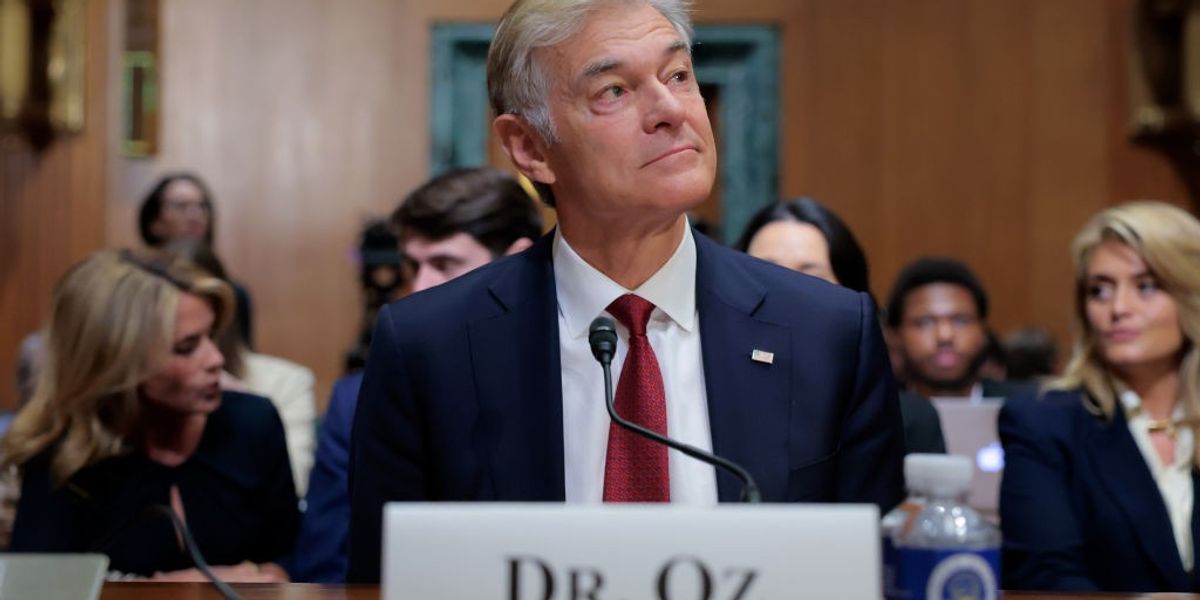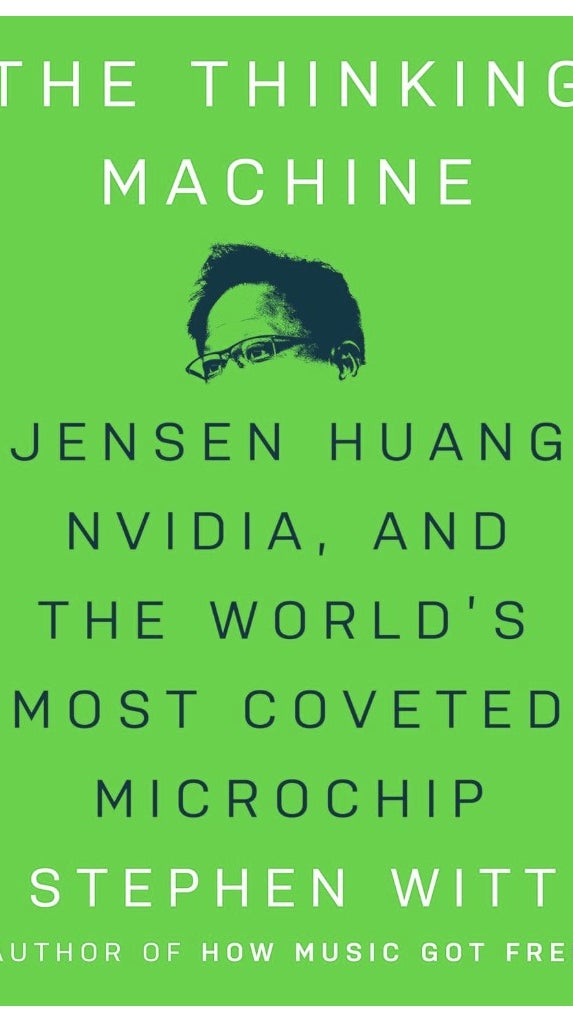
Ms. Magazine’s Spring 2025 Sneak Peek: ‘If It Can Happen Here…’
April 8, 2025
Despite Proven Fraud, Trump to Boost Payments to Privatized Medicare Advantage by $25 Billion | Common Dreams
April 8, 2025Stephen Witt’s new book, The Thinking Machine: Jensen Huang, Nvidia, and the World’s Most Coveted Microchip, is out this week, just as U.S. President Donald Trump’s tariffs have prompted fears of a global trade war and raised questions around the future of the world’s leading companies, including Nvidia.
Nvidia’s graphics processing units, or GPUs, are the most powerful tools used to train artificial-intelligence models. The chips’ enormous computing power has made them the target of U.S. export controls aimed at blocking China’s AI advancement.
Nvidia’s global supply chain is also looking precarious. Taiwan, where most of its top chips have been made, faces threats from China, while Trump’s new tariffs are hitting some of its products. The market turmoil at one point wiped out more than $200 billion of Nvidia’s value.
Witt, who is based in Los Angeles, spoke to Rest of World about Huang’s political test, Nvidia’s global supply chains, and his recent book tours in China and Taiwan. The interview has been edited for length and clarity.
TSMC’s founder Morris Chang said globalization was “almost dead” when his company had to build a factory in Arizona. Now, we have these tariffs. How do you think Jensen Huang will navigate Trump’s policy?
Jensen doesn’t talk politics, not with me, not with anybody. He is probably the most powerful tech figure in America to not attend Donald Trump’s inauguration. Now, Jensen must deal with politics. The disruption to his business is too severe.
Nvidia had long benefited from no U.S. manufacturing. It’s completely outsourced, mostly to Taiwan. Personally, I’m certain he thinks these tariffs are a terrible idea. Whether he will ever say that out loud, I don’t know.
For Nvidia, one option is to just pay the tariffs. Nvidia can afford, almost uniquely, to pay these tariffs, because the margins are high. But profits will go down, and stock prices will go down.
Second is to attempt to rebuild or onshore manufacturing into the United States. I think they are reluctant to do so because it seems likely that any politician, even another Republican, would undo or reverse these tariffs. The third option would be to just raise prices.
Nvidia has also been opposing the U.S. government’s attempts to restrict chip exports to China. After the most powerful chips got banned, it has been selling billions of dollars worth of slightly inferior chips to Chinese tech companies. Why is Nvidia doing this?
Jensen has made the point that China will simply just innovate out of this problem. He was saying that a couple of years ago, and then DeepSeek came along and proved that they could do so.
This is probably Jensen’s point of view: If we ban this stuff, [China] will just build it better and cheaper. It would actually be in our long-term strategic and competitive advantage to keep selling them because then there’s not going to be a domestic competitor.
Even though Nvidia temporarily has this monopoly, they cannot stand still.
Jensen Huang was born in Taiwan; he has many suppliers there. He is also seen as someone who connects Taiwan’s fate, in the face of China’s invasion threat, to the global AI industry. How does he see his role in Taiwan?
Jensen is really a native son of Taiwan. He speaks Taiwanese, and not Mandarin. He has also turbocharged so much productivity and money into Taiwan. In this respect, he is a national hero. He is a celebrity like Steve Jobs.
I asked Deb [Debora] Shoquist, the Nvidia executive in charge of supply chain management, what’s going to happen if China invades Taiwan. And she said she had been instructed never to think about that question, because the consequences would be so enormous. It would be as if California fell off and broke into the ocean.
Viking
Jensen has never advanced or pushed any particular political interest. I think he can remain a little amorphous. My impression is that he was just kicking the can down the road. Nvidia is not going to worry about China and Taiwan; we are going to focus on the other stuff. I don’t think he can do that now [with Trump].
Nvidia is investing in research centers and data infrastructure in developing countries. What is driving the company to do so?
Nvidia might not be manufacturing, but they are selling hardware, so they need to really understand these supply chains, and have very intimate relationships with everyone involved. And they need to spread it as widely as they can because of the potential risk of a global catastrophe.
Some governments want to build their own semiconductor manufacturing industries. Jensen encourages these initiatives. Governments are potential customers for him, too. And I think there’s a pipeline of engineering talent coming from India and China. Why not Vietnam, Malaysia, and Indonesia, as well?
In China … they say: How can my teenage son or daughter become the next Jensen Huang?
There has been a lot of discussion of the harm from tech monopolies. Is Nvidia’s monopoly on high-end chips causing any risks?
No. Here is why. In semiconductors in particular, you throw your products away every two years and reinvent it.
Even though Nvidia temporarily has this monopoly, they cannot stand still. It could happen over the course of a year that they suddenly no longer have a monopoly. Some competitor could come up with an innovative product. Unlike a classic monopoly that stifles innovation and raises prices, Nvidia can’t afford to do that.
You were just promoting the Chinese translations of your book in China and Taiwan. What did people ask you there?
No one talks about politics in China, at least not with me. Instead, they say: How can my teenage son or daughter become the next Jensen Huang?
China has this totally fetishistic relationship with Silicon Valley billionaires. They want to recreate that to the greatest degree possible with the next generation of Chinese students and engineers.
In Taiwan, it was all politics. “Are we all gonna die?” is the subtext of every question I got. There was a certain element of dread. A lot of questions were like: “Is Trump serious about these tariffs? What is TSMC going to do? What’s going to happen to us?”
#Trumps #tariffs #testing #Nvidias #chip #supremacy #Jensen #Huang #weather #storm
Thanks to the Team @ Rest of World – Source link & Great Job Viola Zhou





